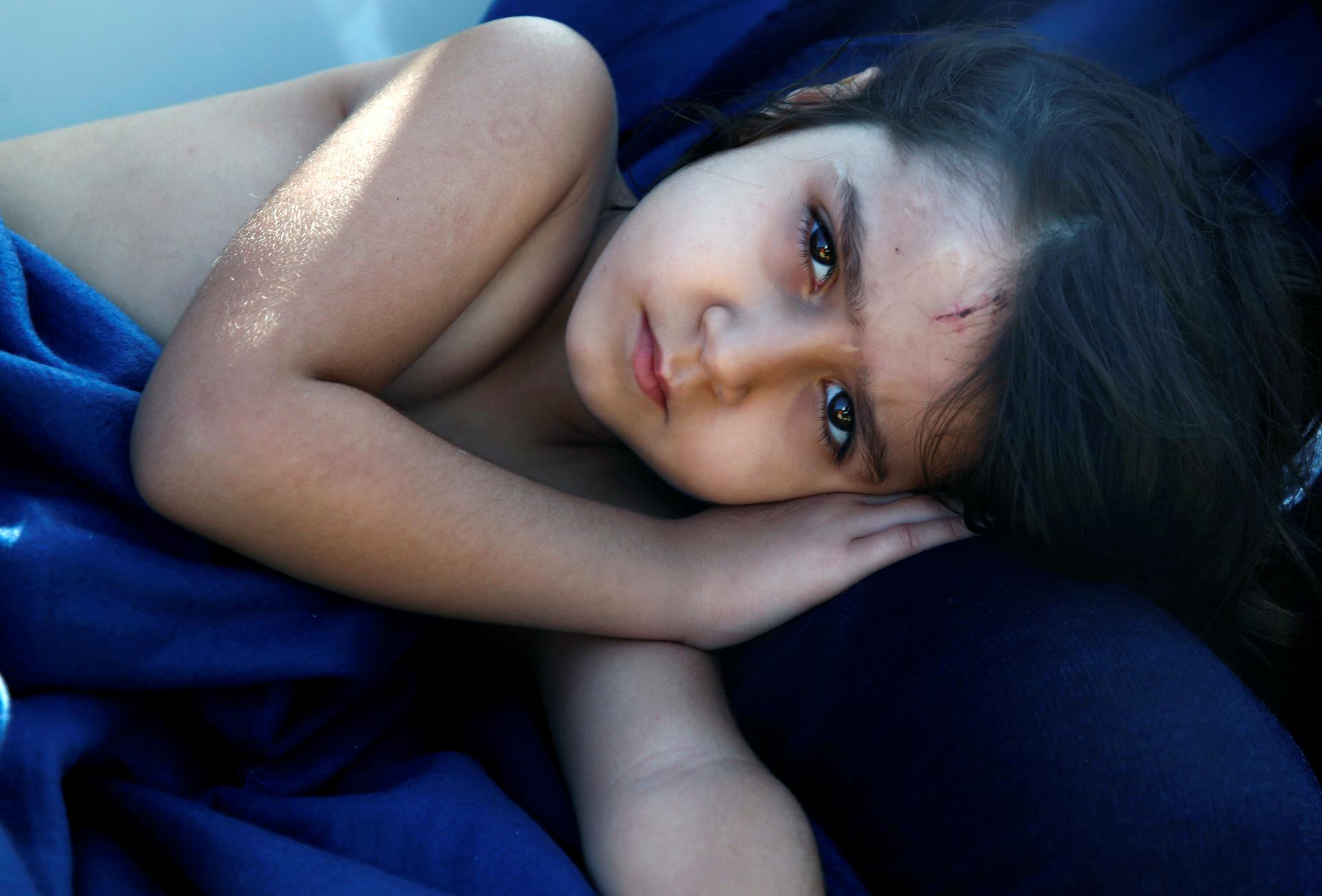A Syrian refugee girl rests inside the Spanish rescue vessel, Astral, after being rescued by the Spanish nongovernmental organization, Proactiva, off the Libyan coast in the Mediterranean Sea.
Each day, migrants set out in flimsy wooden and rubber boats to cross what has become the world's deadliest border — the Mediterranean Sea.
And increasingly, those rickety vessels are turned around and sent back to Libya.
Correspondent Megan Williams spent the last two weeks on the migrant rescue boat, Aquarius, in the Mediterranean, collecting material for the CBC program, The Current.
She says relief workers on Aquarius were readying to rescue a boatload of migrants Friday and bring them to Sicily. Instead, the aid providers received instructions from authorities in Rome to stop and allow Libyan authorities to board the boat instead and send the migrants back to Libyan detention camps.
"It was heartbreaking," Williams says. "We hear a lot about people risking their lives at sea to cross to Italy. But really the worst ordeal for these people are the detention camps in Libya. I talked to many men and women over the days on the boat who'd been rescued, and all of them talked about being tortured. The women were raped … Some women didn't want to talk about it, of course, but the violence in Libya is terrible."
Aquarius was chartered by the French-German nongovernmental organization, SOS Méditerranée. Williams stood on the vessel's bridge looking through binoculars, watching as the migrants were turned back.
"People have to get off that rubber boat and get into a Libyan naval ship and go back to Libya after they'd paid thousands of dollars," she says.
The migrants feared that smugglers would extort additional money from them when they returned to Libya or force them to sell themselves into servitude, according to Williams.
"There's actually auctions going on [in Libya] which the [migrant] men talked about where they're sold off for $400 to work for someone for a year or however long," she adds.
Williams described one Eritrean woman who had made the voyage from Libya accompanied only by her 3-year-old son. The woman told Williams the journey through Sudan was especially treacherous.
"At each stop along the way, the women are raped by the Sudanese soldiers," the migrant explained to Williams. "The Eritrean women all take the pill before they leave on their journey because they know they're going to be raped."
